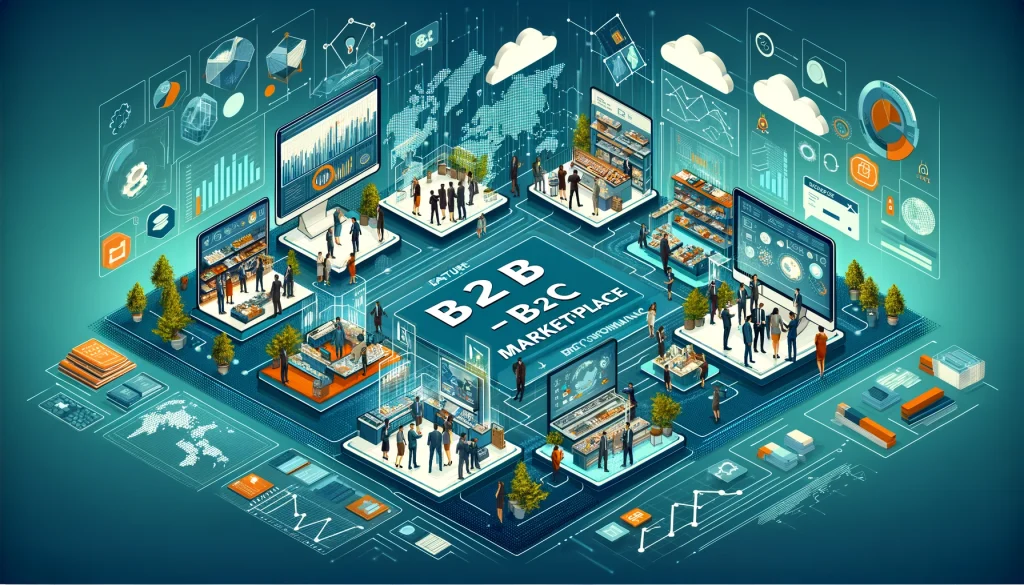A B2B (Business-to-Business) or B2C (Business-to-Consumer) marketplace is an online platform that connects businesses (suppliers, manufacturers, wholesalers) or consumers (buyers) with sellers to facilitate transactions of goods or services. Here are the key components and functionalities typically found in B2B/B2C marketplace platforms:
User Registration and Profiles:
Allow businesses or consumers to create accounts and profiles on the marketplace platform.
Collect and store user information, preferences, and transaction history securely.
Product Listings and Catalogs:
Enable sellers to create listings for their products or services, including detailed descriptions, images, specifications, and pricing.
Organize products into categories and subcategories for easy navigation and search.
Search and Discovery:
Provide robust search functionality that allows users to search for products based on keywords, filters, categories, or attributes.
Offer personalized product recommendations and suggestions based on user behavior and preferences.
Transaction Processing:
Facilitate transactions between buyers and sellers, including order placement, payment processing, and order fulfillment.
Support various payment methods, including credit/debit cards, bank transfers, digital wallets, and alternative payment solutions.
Ensure secure and encrypted transactions to protect sensitive financial information.
Order Management:
Manage orders, track order status, and provide order notifications to buyers and sellers.
Handle order cancellations, returns, refunds, and disputes efficiently and transparently.
Rating and Reviews:
Allow buyers to rate and review sellers and products based on their experience and satisfaction.
Provide seller ratings, product ratings, and user-generated feedback to build trust and credibility in the marketplace.
Seller Management:
Onboard and verify sellers, including verification of business credentials, licenses, and certifications.
Monitor seller performance, sales metrics, and compliance with marketplace policies and guidelines.
Provide tools and resources to help sellers manage their inventory, pricing, promotions, and sales analytics.
Customer Support and Resolution:
Offer customer support channels, including live chat, email support, and helpdesk tickets, to assist users with inquiries, issues, and concerns.
Resolve disputes and escalations between buyers and sellers through mediation and dispute resolution mechanisms.
Analytics and Reporting:
Provide sellers and administrators with access to analytics and reporting tools to track sales performance, customer behavior, and marketplace trends.
Generate reports on key metrics such as sales revenue, conversion rates, customer acquisition, and inventory turnover.
Customization and Integration:
Customize the marketplace platform to align with specific industry verticals, business models, branding requirements, and user preferences.
Integrate with third-party systems and services, such as payment gateways, shipping carriers, ERP systems, and marketing tools, to streamline operations and enhance functionality.
Compliance and Security:
Ensure compliance with legal and regulatory requirements, including data protection laws, consumer protection regulations, and taxation laws.
Implement security measures to protect user data, payment information, and transactions against unauthorized access, fraud, and cybersecurity threats.





